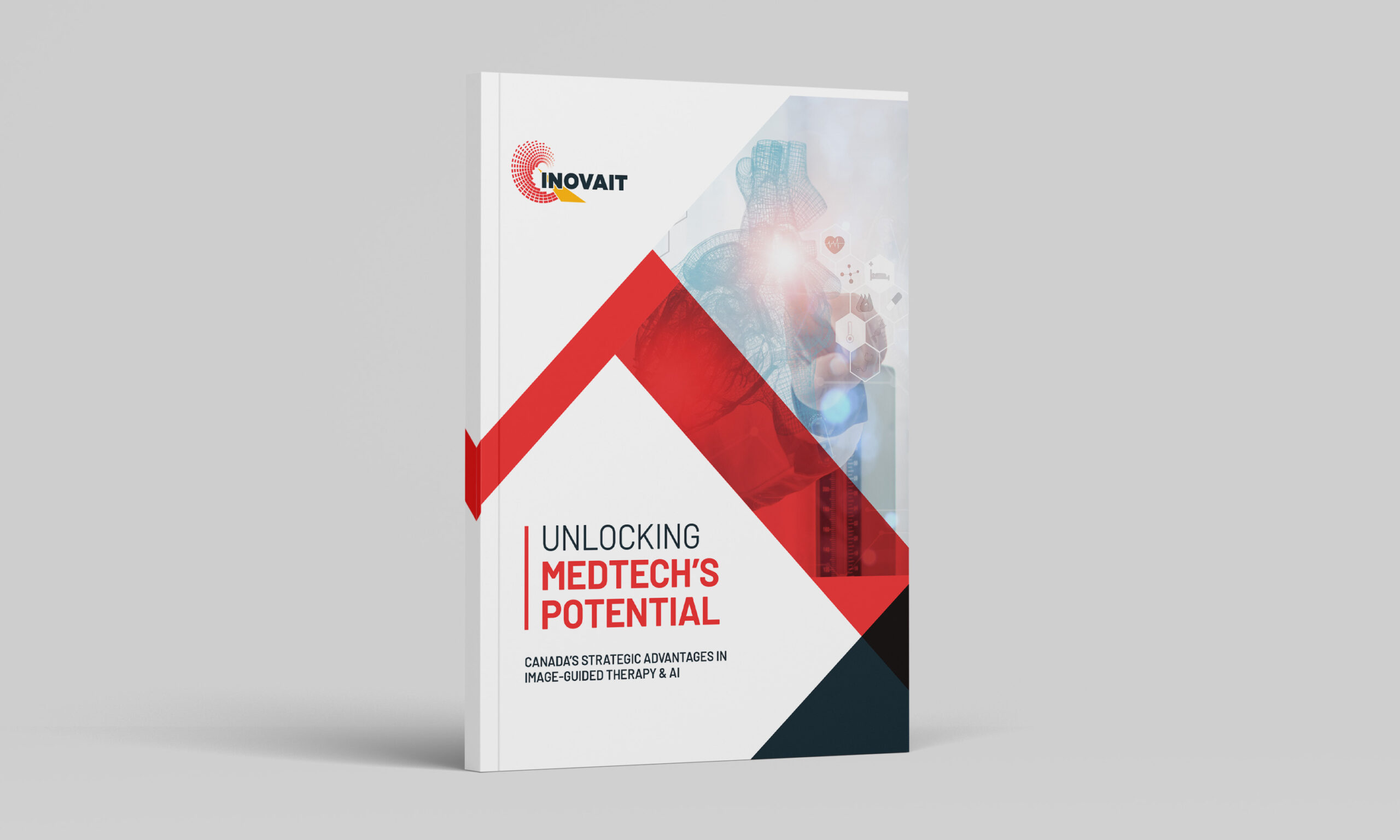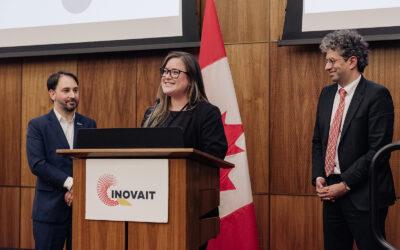TORONTO, October 16, 2024 | INOVAIT, the pan-Canadian innovation network supporting advancements and commercialization in image-guided therapy (IGT) and artificial intelligence (AI), is excited to share their latest report titled, ‘Unlocking Medtech’s Potential: Canada’s Strategic Advantages in Image-Guided Therapy & AI’. Through synthesized insights from interviews with founders and executives from 30 IGT companies in the INOVAIT Network, this new report uncovers the untapped potential of the image-guided therapy sector in Canada.
Image-guided therapy encompasses groundbreaking technologies that integrate medical imaging techniques to enhance the full spectrum of patient care from diagnostic interventions to treatment planning and execution, and post-treatment evaluation. This innovative healthcare route, championed by Sunnybrook Research Institute, is gaining traction in healthcare due to its significant improvements in patient outcomes, provider experience, and cost-effectiveness.
Key Findings: The Benefits of Building an IGT Company in Canada
The report highlights several strategic benefits identified by industry leaders for founding and operating their companies in Canada, including:
- Research Excellence: A strong academic and research foundation fostering innovation in IGT.
- Deep Talent Pool: Access to a skilled workforce in medicine, engineering, and technology, including world-leading specialists in AI.
- Global Access: Opportunities for international collaboration and a geography and policy landscape enabling preferred market expansion.
- Non-dilutive Capital: Availability of funding sources including those from government that do not require relinquishing equity.
- Capital Efficiency: An environment conducive to developing cost-effective businesses and technologies.
- Supportive Community: A collaborative network that promotes resource-sharing and knowledge exchange.
Overall, this report emphasizes that Canada possesses unique advantages to fortify a global stronghold in IGT innovation.
As the global medtech landscape continues to evolve, this report serves as a landmark resource for stakeholders seeking to understand the unique benefits of Canada’s IGT sector. By capturing the authentic voices of Canadian industry leaders, INOVAIT showcases not only the potential of Canadian companies but also the collaborative spirit driving advancements and commercialization in healthcare technology.
You can review the full report here: www.inovait.ca/reports




